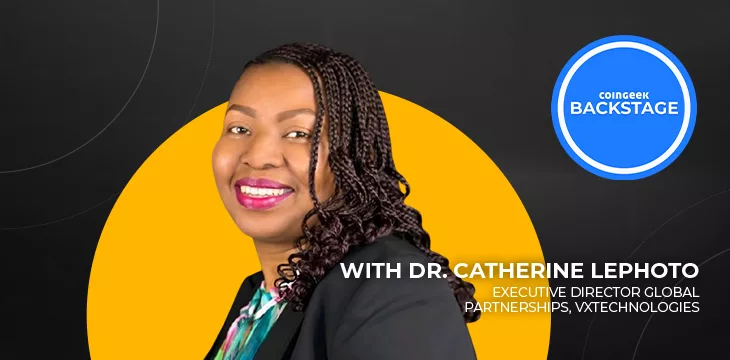|
Getting your Trinity Audio player ready...
|
At the Digital Nigeria International Conference 2023, Dr. Catherine Lephoto joined a panel session that delved into digital transformation through blockchain adoption. She emphasized the need for Africans to own their data, and in a follow-up interview with CoinGeek Backstage, she discussed the potential of data ownership for the region.
Dr. Lephoto is the executive director of global partnerships for VXTechnologies, a company focused on record creation and verification on the BSV blockchain.
“For Africa, the first sector we’re focusing on is education and any related credentials of achievement,” she told CoinGeek Backstage reporter Becky Liggero.
Forgery of education credentials is a global challenge that affects even the most renowned institutions. However, Dr. Lephoto believes it has affected Africa disproportionately and has far-reaching effects.
In Dr. Lephoto’s homeland of South Africa, the medical sector was rocked by a scandal in which a doctor who had been practicing for years was found to have faked all his credentials. In fact, since 2020, South African authorities have arrested over 120 fake medical professionals.
“My concern is with the patients that have been consulting this doctor for all these years that he has been practicing without qualifications,” Dr. Lephoto says.
The challenge is not limited to South Africa. Nigerian authorities have struggled with fake credentials; recently, the West African country announced that it would no longer recognize credentials from universities in Togo, Benin, Uganda, and Kenya over high fraud cases. In Kenya, a lawyer who had won 26 court cases was found to have faked his credentials in 2023.
These scandals hurt young Africans as they seek jobs in the gig economy as global companies are concerned about the validity of their credentials, a challenge Dr. Lephoto is solving with VXTechnologies.
Aside from verification, blockchain can enable Africans to own their data. With 1.5 billion people, the region generates massive amounts of data, but it all goes to Western and Eastern companies, which monetize it for billions of dollars.
According to Dr. Lephoto, it starts with creating awareness of data’s value in the digital economy. This will make Africans keen on owning and monetizing their data, and eventually, it will draw them to platforms that promise them full data ownership.
Watch: Championing blockchain adoption in Africa with Mohammed Ibrahim Jega

 07-05-2025
07-05-2025 





